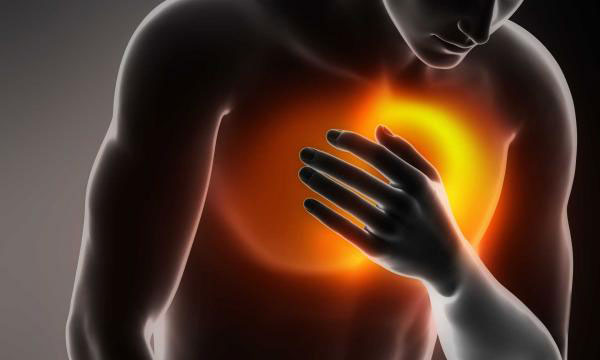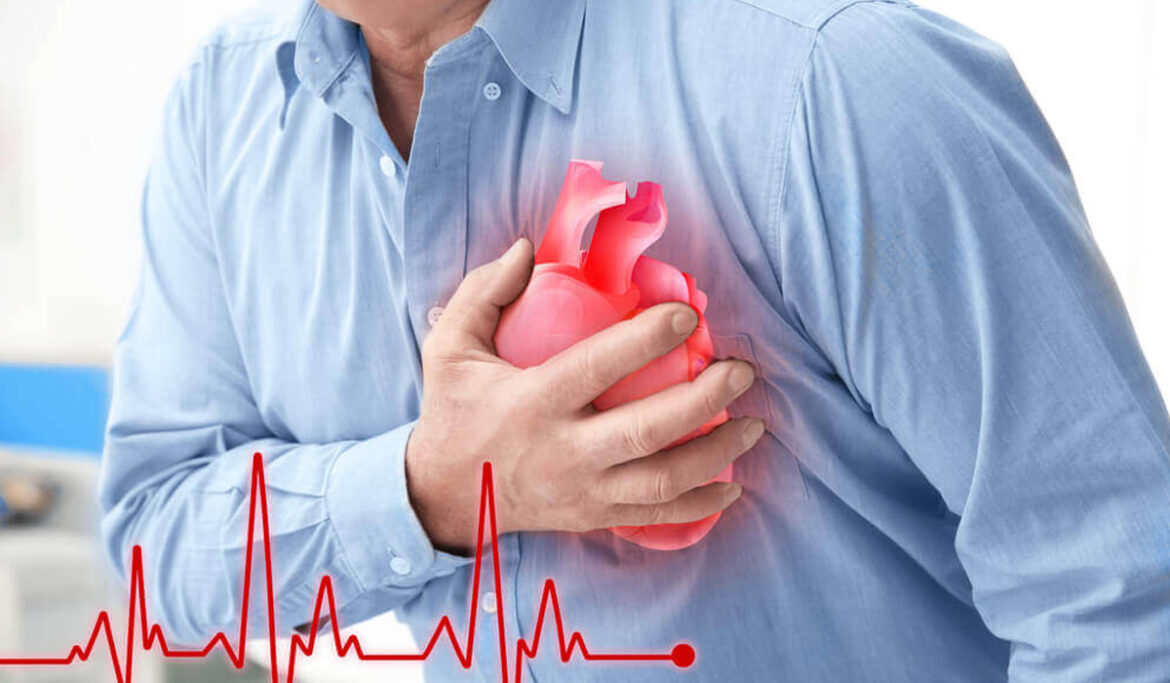Chest pain refers to pain felt anywhere in the chest area. Anywhere between the level of your shoulders to the bottom of your ribs. There are many causes of chest pain. It is difficult to diagnose the exact cause of chest pain without carrying out some tests and investigations.

It is important to take chest pain seriously because it can sometimes indicate a serious underlying problem. Any new, severe, or persisting chest pain should be discussed with your doctor. It is particularly important to be in touch with your doctor, if you are an adult and have a history of heart or lung disease. If the chest pain is particularly severe, radiating to your arms or jaw, you feel sick, feel sweaty or become breathless, these can also be symptoms of a heart attack.
You may feel chest pain anywhere from your neck to your upper abdomen. Depending on its cause, chest pain may be:
- Sharp
- Dull
- Burning
- Aching
- Stabbing
- A tight, squeezing, or crushing sensation
There are many possible causes of chest pain. Below is a brief overview of some of the more common causes.
Chest pain varies depending on the person. It also varies in:
- quality
- intensity
- duration
- location
The pain feel like discomfort, a sharp, stabbing pain or a dull ache. Chest pain may be a sign of a serious heart-related problem, but it can also occur due to one of many common causes that are not life-threatening.
Heart-related causes of chest pain
Although not the only cause of chest pain, these heart problems are common causes:
- A heart attack (myocardial infraction), which is basically a blockage of blood flow to the heart.
- Angina, chest pain due to blockages in the blood vessels leading to your heart.
- Pericarditis, caused by an inflammation of the sac around the heart.
- Myocarditis, the inflammation of the heart muscle.
- Cardiomyopathy, a disease of the heart muscle.
- Aortic dissection, a rare condition involving a tear of the aorta, the large vessel that comes off of the heart.
Gastrointestinal causes of chest pain
Gastrointestinal problems can also cause chest pain and include:
- Heartburn or Acid reflux.
- Swallowing problems related to disorders of the esophagus
- Gallstones
- Inflammation of the gallbladder or pancreas
Lung-related causes of chest pain
Problems with the lungs can cause a variety of types of chest pain. These are common causes of chest pain:
- pneumonia
- viral bronchitis
- pneumothorax, which is a leak of air from your lung into your chest
- a blood clot, or pulmonary embolus
- bronchospasm, or constriction of your air passages, which commonly occurs in people who have asthma and related disorders such as chronic obstructive pulmonary disease
Muscle- or bone-related causes of chest pain
Sometimes chest pain may result from overuse or an injury to the chest area from a fall or accident. Viruses can also cause pain in the chest area. Other causes of chest pain include:
- bruised or broken ribs
- sore muscles from exertion or chronic pain syndromes
- compression fractures causing pressure on a nerve
Other causes
- Shingles, an infection of the nerves and skin that occurs after reactivation of the chickenpox virus, can cause chest pain. You may develop pain along your back or chest before the shingles rash becomes apparent.
- Panic attacks, which are sudden episodes of intense fear when there’s no real danger or cause, can also cause chest pain.
What symptoms may occur with chest pain?
You may have other symptoms that occur with chest pain. Identifying any symptoms you may be having can help your doctor make a diagnosis. These include:
Heart-related symptoms
While pain is the most common symptom of a heart problem, some people experience other symptoms, with or without chest pain. Women, in particular, have reported unusual symptoms that later have been identified as being due to a heart condition
- chest pressure or tightness
- back, jaw, or arm pain
- fatigue
- lightheadedness
- dizziness
- shortness of breath
- abdominal pain
- nausea
- pain during exertion
Other symptoms
Symptoms that may indicate your chest pain isn’t heart-related include:
- a sour or acidic taste in your mouth
- pain that only occurs after you swallow or eat
- difficulty swallowing
- pain that’s better or worse depending on your body position
- pain that’s worse when you breathe deeply or cough
- pain accompanied by a rash
- a fever
- aches
- chills
- a runny nose
- a cough
- feelings of panic or anxiety
- hyperventilating
- back pain that radiates to the front of your chest
How is chest pain diagnosed?
Seek emergency treatment immediately if you think you may be having a heart attack and especially if your chest pain is new, unexplained, or lasts more than a few moments.
Your doctor will ask you questions. Your answers can help them diagnose the cause of your chest pain. Be prepared to discuss any related symptoms and to share information about any medications, treatments, or other medical conditions you may have.
Diagnostic tests
Your doctor may order tests to help diagnose or eliminate heart-related problems as a cause of your chest pain. These may include:
- An electrocardiogram, which records your heart’s electrical activity.
- Blood tests to measure enzyme levels
- A chest x-ray to examine your heart, lungs, and blood vessels
- An echocardiogram, which uses sound waves to record moving images of the heart
- An MRI to look for damage to the heart or aorta
- Stress tests to measure your heart function after exertion
- An angiogram to look for blockages in specific arteries
How is chest pain treated?
Your doctor might treat chest pain with medication, noninvasive procedures, surgery, or a combination of these methods depending on the cause and severity of your chest pain.
Treatments for heart-related causes of chest pain include:
- Medications, including nitroglycerin and other medications that open partially closed arteries, clot-busting drugs, or blood thinners.
- Cardiac catheterization, which involves using balloons or stents to open blocked arteries.
- Surgical repair of the arteries, which is also known as coronary artery bypass grafting or bypass surgery.
Treatments for other causes of chest pain include:
- lung re-inflation for a collapsed lung, which your doctor will perform by inserting a chest tube or related device
- antacids or certain procedures for acid reflux and heartburn
- anti-anxiety medications for chest pain related to panic attacks
What is the outlook for people with chest pain?
Your doctor can treat and resolve chest pain due to many common conditions, such as:
- Acid reflux
- Anxiety attacks
- Asthma
- Related disorders
However, chest pain can also be a symptom of a life-threatening condition. Seek immediate medical treatment if you think you may be experiencing a heart attack or another heart problem. Once your doctor diagnoses you, they can recommend additional treatments to manage your condition.
[You may also read about Cardiology Treatments in India]
Related posts:
A Guide to Minimally Invasive Heart Bypass Surgery
8 Ways to Lower Down the Risk of Heart Disease
